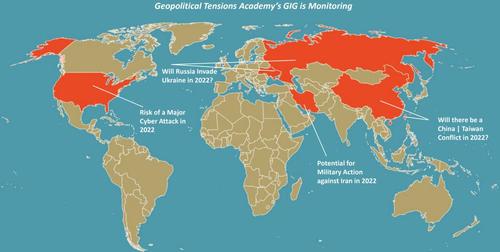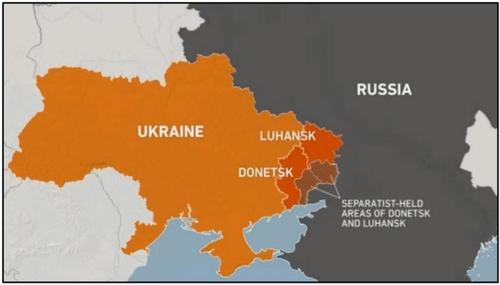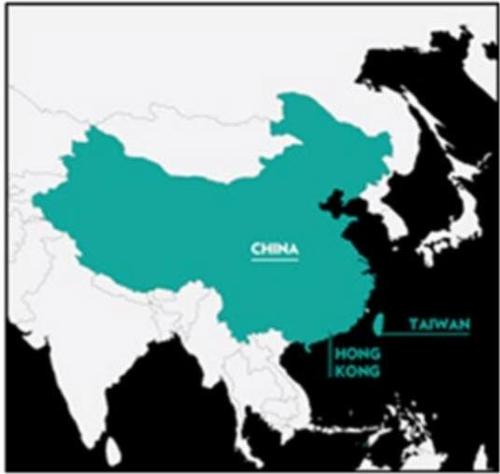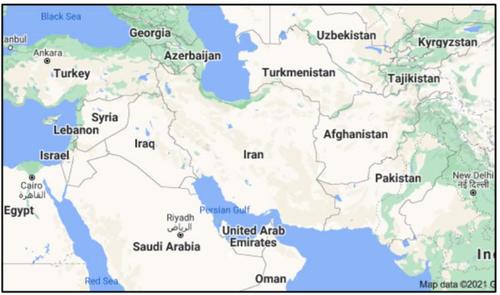Around The World
In this month’s edition of Around the World with Academy Securities, our Geopolitical Intelligence Group (GIG) focuses on providing their perspective on the following geopolitical risks and potential surprises for 2022:
1. Will Russia Invade Ukraine in 2022?
2. Will there be a China | Taiwan Conflict in 2022?
3. Potential for Military Action against Iran in 2022.
4. Risk of a Major Cyber Attack in 2022.
In this report, we examine the potential geopolitical surprises/risks that we could see in 2022. We open with the high likelihood of a Russian incursion into Ukraine next year. Next, we review the tension between China and Taiwan and conclude that while an invasion in 2022 is unlikely, the risks grow over the next 3-5 years. We also revisit the Iranian nuclear discussions and while a return to the old JCPOA is unlikely, the chance of a U.S. attack on Iran is low next year. However, Israeli covert activities will continue against Iran’s nuclear facilities and there is a risk of a military strike if Iran gets close to a nuclear breakout. Finally, considering the high-profile ransomware attacks that occurred in 2021, we review the chances of a more significant cyber-attack on critical infrastructure in 2022. In addition to these areas, other risks our GIG sees in 2022 include the growth of Chinese influence in Central/South America (including in Nicaragua where the government there just flipped from supporting Taiwan to China) and a possible shift of support from Taiwan to China in Honduras as well. While the U.S. stands ready to “surge” economic aide to Honduras to encourage the new government there to maintain its ties with Taiwan, the fact that China is moving into the Western hemisphere and courting countries for support is concerning. Our GIG is also worried that the withdrawal from Afghanistan and a “fractured” NATO alliance could embolden our adversaries to act against U.S interests globally in 2022.
Front and Center: Will Russia Invade Ukraine in 2022?
In our last ATW and recent SITREP, we addressed the recent buildup of Russian troops on the Ukrainian border. Currently, there are ~100k troops near the Ukrainian border and the concern is that Putin could be in a position to invade by January 2022. While U.S. intelligence does not believe that Putin has made a final decision on whether to invade Ukraine, preparations are being made, including moving more Russian troops to the border and establishing the supply lines that could support a larger incursion into the country. In the December 7th virtual summit with President Putin, President Biden made it clear that there would be severe economic consequences if Russia were to move forward with an invasion. While it would require getting Germany to agree, there is a high likelihood that the Nord Stream 2 would not be granted final approvals if an invasion were to occur. With the high price of energy and a frigid winter heading to Europe, this would have both political and economic implications. In addition, the G7 (Britain, Canada, France, Germany, Italy, Japan, and the U.S.) came out on December 13th with a statement that read, “Any use of force to change borders is strictly prohibited under international law…Russia should be in no doubt that further military aggression against Ukraine would have massive consequences and severe costs in response.”
\While a move into Ukraine would come at a high cost, the fact that Ukraine appears to be moving away from Russia and closer to the West could be worth the risk for Putin. While not a NATO member, the U.S. has shown its support for Ukrainian independence and has supplied Ukraine with $2.5b in military support, including Javelin anti-tank systems. Putin views the collapse of the Soviet Union 30 years ago as the largest geopolitical disaster of the 20th Century. Putin is worried that the positioning of NATO missiles (pointed at Russia) in Ukraine could be an option one day and he will do everything in his power to convince the West that he is capable of mounting an invasion to bring Ukraine back into the Russian sphere of influence. To ease tensions, President Biden has been trying to organize a meeting including a few key European NATO members with Putin directly. This offer has angered some of the Eastern European NATO allies (i.e., the Baltic states). This concerns them because not only do these countries’ leaders feel that Russia should not have a say on who is included in NATO, but they also believe that Putin will use this meeting to further drive a wedge in between the West/East members of NATO. Putin has already demanded that NATO rescind the offer made in 2008 to include Ukraine and Georgia in the alliance at some point and that NATO should agree not to hold military exercises/deploy military forces to countries that border Russia. Our GIG will continue to closely monitor the situation, but chances are high that Putin takes advantage of a fractured NATO and executes a military incursion into Ukraine.
In 2022, our GIG believes that there is a high chance of a Russian incursion into Ukraine after certain conditions are met and preparations are complete.
“Russia has already taken parts of the Donbass region and Crimea from Ukraine. Putin wants all the previous Soviet Bloc countries back under his control. Ukraine is his biggest prize. He remains focused on intimidation, coercion, and influence operations to weaken and overthrow the Zelensky government. His approach is aimed at targeting Ukraine itself, NATO, and the EU. Expect him to continue to push on these doors and see how far he can get. I don’t see a cross-border invasion until a series of influence operations by Russia show weakness by the West. He is on that path.” - General Robert Walsh
“If we define "advance" as some number of Russian troops crossing the internationally recognized border between Ukraine and Russia, I'd say that the chances are high (with a moderate chance of a full-scale invasion in 2022). However, Russians in general absolutely hate to lose face in public. So, until someone comes up with a way for Putin to withdraw his troops from the border without losing face, the troops will remain there, and the threat of invasion will remain high.” - Captain Wendy Lawrence
“Russia will continue to increase gray zone activity in Ukraine to set the conditions for Russia/Russian citizens to look like the victim and then take action to secure a portion of Ukraine, much like they did with Crimea.” - General KK Chinn
“In 2022, there is more than a 50% chance (of invasion) as there is little downside from Putin’s perspective. The way this is developing is that Russia is testing the West (probing for weaknesses) and may attack if an opportunity presents itself. At the same time, Russian authorities understand that any attempt to occupy Ukrainian territory would face widespread public opposition and trigger sweeping western sanctions that could batter the Russian economy. The chaotic withdrawal from Afghanistan may embolden Putin. The situation is complicated by the fact that Ukraine is a former part of the Soviet Union and it is not a member of NATO, and therefore the U.S. has no formal defense treaty obligations with Ukraine. However, it’s important to note that the U.S. and Ukraine did sign a strategic defense framework this past August that reiterates the DoD’s continued support for Ukraine’s right to decide its own foreign policy, free from outside interference, including Ukraine’s NATO aspirations.
Right now, we really don’t know if the Russian troop buildup is a warning to NATO to back down or an actual buildup to launch an invasion. Putin is an expert at brinkmanship. His economy is not big enough to gain influence on the world stage so he’s using his military strength to wield power. That’s why you see pressure growing in the West to deter Putin from taking any aggressive action. He will push the EU and U.S. right up to the brink and then may blink or press into Ukraine. I think he just may push into Ukraine using tactics that are confusing and less than a conventional invasion, but none the less, Putin will use Russian forces on Ukrainian soil.” - General David Deptula
Will there be a China | Taiwan Conflict in 2022?
As we discussed in our previous ATW, President Biden met virtually with President Xi and discussed a wide range of topics including Taiwan, cyber, human rights, trade, Iran, and nuclear weapons. The goal of the meeting was to keep the lines of communication open and prevent a military accident that could quickly escalate. Dozens of incursions into the Taiwanese Air Defense Identification Zone this year have caused tensions to rise between China and Taiwan and even resulted in U.S. Secretary of Defense Austin calling these incursions “rehearsals” of China’s future intentions. With the U.S. shoring up its partnerships in the region, including the “Quad” and the nuclear submarine deal with Australia and the UK, China is feeling the pressure. While the risk of a nearterm crisis over Taiwan is slim with the upcoming Winter Olympics in Beijing, China continues to speak out against what it perceives as the U.S. overstepping its boundaries. The U.S. inviting Taiwan to the December 9th Summit for Democracy and diplomatically boycotting the Winter Games over human rights concerns have further enflamed the tension.
China’s Xi believes that a unification with Taiwan must be “fulfilled,” and China’s military capabilities have grown over the past few years. The August 2021 Chinese test of a hypersonic missile, their development of the DF-21D medium range ballistic anti-ship missile, and their desire to drastically expand their nuclear capabilities have demonstrated that China’s military is not anywhere near the same force that quickly backed down during the 1996 Taiwan Strait Crisis. China has also expanded their reach into the South China Sea in “plain sight”. Making the situation even more complicated, Chinese and Russian joint naval exercises were conducted in October of this year.
These actions reinforced the concern that U.S. adversaries will continue to engage with one another as they see a growing threat from U.S. partnerships in the region. In addition, during a virtual meeting between Xi and Putin on December 14th, regarding the situation on the Ukrainian border, Xi supported Putin’s request for security guarantees from the West.
In 2022, our GIG sees a low chance of a Chinese move on Taiwan, but the risk rises significantly by 2025. However, there is a moderate/high risk of an incident involving China and one of our allies/partners in the region next year.
“In the South China Sea, China’s military is itching to demonstrate their newly developed military capabilities. However, they will not go to war in the near-term until they feel that they have a “full domination” capability which will take years to develop. Expect small and more serious confrontational events to occur where China begins to intimidate and confront the Quad countries and their partners like we are already seeing with the Philippian Navy and Marine Corps. With respect to Taiwan, I don’t see this occurring in 2022 with the Beijing Olympics and the Chinese Communist Party holding its 20th National Party Congress. The intimidation campaign will continue to keep pushing on Taiwan to weaken their resolve along with their regional partners’ willingness to come to their aid.” - General Robert Walsh
“It is not in the self-interest of China to invade Taiwan and be seen as the aggressor. China will continue to work gray zone activities to set conditions for them to be viewed as the victim of aggression and over time through the democratic process, slowly gain control of Taiwan by 2049. In the interim, it is important for the U.S./its allies and partners to remain united in confronting China. However, after the Olympics, there is a strong likelihood that there will be an incident that occurs between China and a member of the Quad/smaller nations in the region. China will continue to project their image as the dominant power player in the region and that they are the primary security provider in Asia. Look for rivals to acquiesce on territorial claims and China to project power to protect oil and natural resources within their nine-dash line.” - General KK Chinn
“It depends on the definition of “confrontation,” but the likelihood of ships and aircraft "playing chicken" with each other is high and I think that China will be the aggressor. With respect to Taiwan, I suspect what China is doing right now is more of a pressure campaign than an actual preparation for an invasion.” - Captain Wendy Lawrence
“Taiwan is an emotional issue for the PRC. If they were smart, they would back off today and take the long view. Within the next 100-200 years, Taiwan will assimilate into the PRC. However, the PRC sees the U.S. as unlikely to respond, and even if the U.S. does, the PRC feels that they will be able to defeat them, especially if they wait 2-3 years. They know that the U.S. has plans to recapitalize and grow their forces to meet the challenges that the PRC presents, but not until the early 2030s, so they may be willing to apply maximum pressure (to include military action) against Taiwan before 2030. How the U.S. works with the Quad could be key and a form of “containment” of the PRC and may be effective if orchestrated correctly.” - General David Deptula
“Every century there has been a different leading state: U.S. (20th century), Britain (19th), France (18th), Netherlands (17th), Spain (16th). Who will it be in the 21st century? China’s 100-year plan/vision (1949-2049) ends with China being the dominant power in the world. Can the U.S. with its allies and partners unite the smaller and surrounding countries around China to choose sovereignty, freedom, democracy, and make the U.S. their primary security partner or will these countries choose their biggest trading partner (China)? Our strategic center of gravity is our allies and partners, and we need to leverage them to challenge both China and Russia with overwhelming threats in all domains to lend credence to conventional deterrence. Smaller countries matter because they have a vote in multilateral organizations like the UN. However, when under China’s control, they self-censure or support China’s action or get penalized economically. We must counter China’s political and economic influence by conducting strong messaging campaigns against China, reassuring allies that December 17, 2021 Around the World with Academy Securities 5 they can count on the U.S. as part of their larger national security strategy, which includes the deterrence umbrella, and that we will fulfill our long-term security commitments. The Arctic and Antarctica will become regions of great power competition between Russia, China, and the U.S. Both regions have the strong potential for oil and rare earth minerals that China will need in the future to fuel their growing economy. In Latin America in 2021, the leftist populist regimes (Venezuela, Nicaragua, Cuba, Bolivia, Argentina, Peru) leveraged or deepened relationships with China, Russia, Iran, and other U.S. rivals. There is a strong potential for this to continue in 2022 with the potential that Honduras, Chile, Colombia, and Brazil turn to China. The region is being enabled by money from our adversaries and we need to develop a strategy or risk losing the region. China flipped Nicaragua to sever diplomatic ties with Taiwan and we can expect Honduras to be next, leaving only Guatemala and Belize in Central America maintaining diplomatic ties with Taiwan. No surprise this was announced at the same time as the Biden administration’s Summit for Democracy. The harsh reality is that countries have options today and U.S. influence has diminished significantly in the Central America region and there is the risk that El Salvador, Costa Rica, Panama, and potentially Honduras could support China in the near future.” - General KK Chinn
Potential for Military Action against Iran in 2022
n our October ATW and our most recent webinar, we discussed the likelihood of re-entering a nuclear deal with Iran. On December 4th, the talks adjourned allowing representatives from the parties involved, including Russia, China, Britain, France, and Germany to brief their respective governments. However, there was little optimism in a deal being reached. This development was not surprising as the new hard line chief negotiator, Deputy Foreign Minister Ali Bagheri Kani, believes the previous deal went too far in restricting Iran’s nuclear program and wants all sanctions to be removed and for the U.S. to agree not to leave the deal again.
The state of the negotiations has deteriorated to the point that it is frustrating all parties involved, including China and Russia. Earlier this year, China signed a 25-year economic agreement with Iran and continues to buy Iranian oil in defiance of U.S. sanctions. China took a larger role in the negotiations in Vienna, which means that a breakthrough is possible, or the discussions are close to falling apart. China can use their leverage to their advantage, especially when it comes to other issues of tension with the U.S. However, if these talks do fail, besides sanctions targeting the oil sales to China, covert operations (led by Israel) will likely continue in Iran utilizing the vast network its intelligence service has built. Israel used its network to execute attacks on the nuclear facility at Natanz that not only damaged the buildings in the complex, but also the centrifuge systems. In addition, the Israelis have been conducting joint training exercises with the U.S. Navy’s 5th Fleet as well as with the UAE and Bahrain.
Our GIG believes there is a low/moderate chance of a military attack on Iran’s nuclear facilities in 2022, but only after all available diplomatic means have been exhausted and Iran is close to a nuclear breakout, which would force Israel to take military action.
“The JCPOA is DOA (i.e., not going to happen). However, the U.S. will take no action against Iran during a Biden administration because they have no stomach for it. Biden’s entire national security team is not interested in poking the Iranian beehive. To Israel however, Iran’s nuclear threat is real and they will take whatever action is necessary to nip it in the bud. Israel’s F-35s will be key in any military action along with cyber and Special Operations Forces.” - General David Deptula
“There will be a miscalculation by Iran/Iranian proxies at some point in 2022 that will lead to the U.S. conducting military action against Iran. Israel will never allow Iran to develop into a nuclear capable country and will do whatever is necessary to stop Iran from attaining the capability through either covert or overt action.” - General KK Chinn
“With respect to Israel, (an attack on Iran) is less likely now that Netanyahu is no longer in charge. But like Russia under Putin, it seems to me that Israel doesn't really care what the rest of the world thinks, especially when it comes to what the country perceives as self-preservation. If Iran attacks U.S. troops or assets, the U.S. will respond. If Iran doesn't instigate, then there is a low probability of U.S. action. Regarding the JCPOA, Iran will drag out negotiations, but I think something will get done by the end of the year.” - Captain Wendy Lawrence
“I don’t see an attack by the U.S. on Iran happening in 2022. Also, the U.S. initiated JCPOA negotiations will force Israel to back off their own desire to attack Iran. Israel still respects the Biden administration enough to not act unilaterally. Biden is putting his reputation on the line to solve the nuclear weapons problem diplomatically through the JCPOA negotiations and the strategy he set during his election campaign. The Biden administration wants the JCPOA too much to let details get in the way. They will move throughout 2022 towards a renewed agreement even if they must concede leverage and concessions to Iran. This same negotiating group in the Biden administration negotiated the original agreement during the Obama administration and they are determined to get back to their original plan and reverse the Trump administration’s actions.” - General Robert Walsh
Risk of a Major Cyber Attack in 2022
As we reported in our July and May ATWs, a cyber-attack on U.S. critical infrastructure orchestrated by a criminal group/state sponsor came to fruition in 2021. In May, a ransomware attack by a Russian criminal gang called Darkside took down the 5,500-mile Colonial Pipeline which supplies 45% of the East Coast’s fuel. While Putin denied supporting the attack, the event highlighted the vulnerabilities of critical infrastructure. In July, the Biden administration (and European allies) took the significant step of accusing China of the massive hack of the Microsoft Exchange email system. This email system is used by some of the world’s largest companies, including many defense firms.
Cyber-attacks have become a global threat to critical infrastructure and in December, Israel led a 10-country exercise (including U.S., UK, United Arab Emirates, Germany, Italy, Austria, Switzerland, the Netherlands, Thailand, the International Monetary Fund, and the World Bank) that tried to increase cooperation between different entities in protecting the global financial system. In addition, the U.S. Cyber Command/NSA led by Gen. Paul M. Nakasone is getting more involved in gathering intelligence and “imposing costs” on entities tied to ransomware attacks on critical infrastructure.
Our GIG believes there is a moderate/high risk of a cyber-attack on U.S. critical infrastructure in 2022 and that probability increases in the event of a military conflict.
“There is a chance of a significant attack, but a critical cyber-attack against U.S. infrastructure will most likely be held as part of the initiation of, or along with, a major conflict somewhere else to distract and degrade a U.S. response. For example, a PRC move against Taiwan in the mid-2020s.” - General David Deptula
“There is a small chance of an attack across the U.S. in an integrated fashion to deny or disrupt critical infrastructure that has regional or national strategic effects. However, there is a 50% chance we could see another Colonial Pipeline ransomware type attack that is more focused on individual companies for monetary gain.” - General Robert Walsh
“If you think about it, how far away are we from digital risk leading to physical casualties in the future – hospitals, etc. There will be attacks and in a perfect world we will be able to defend against them so it will not cause a massive financial upheaval in the markets.” - General KK Chinn
https://ift.tt/3mbBv40
from ZeroHedge News https://ift.tt/3mbBv40
via IFTTT









0 comments
Post a Comment